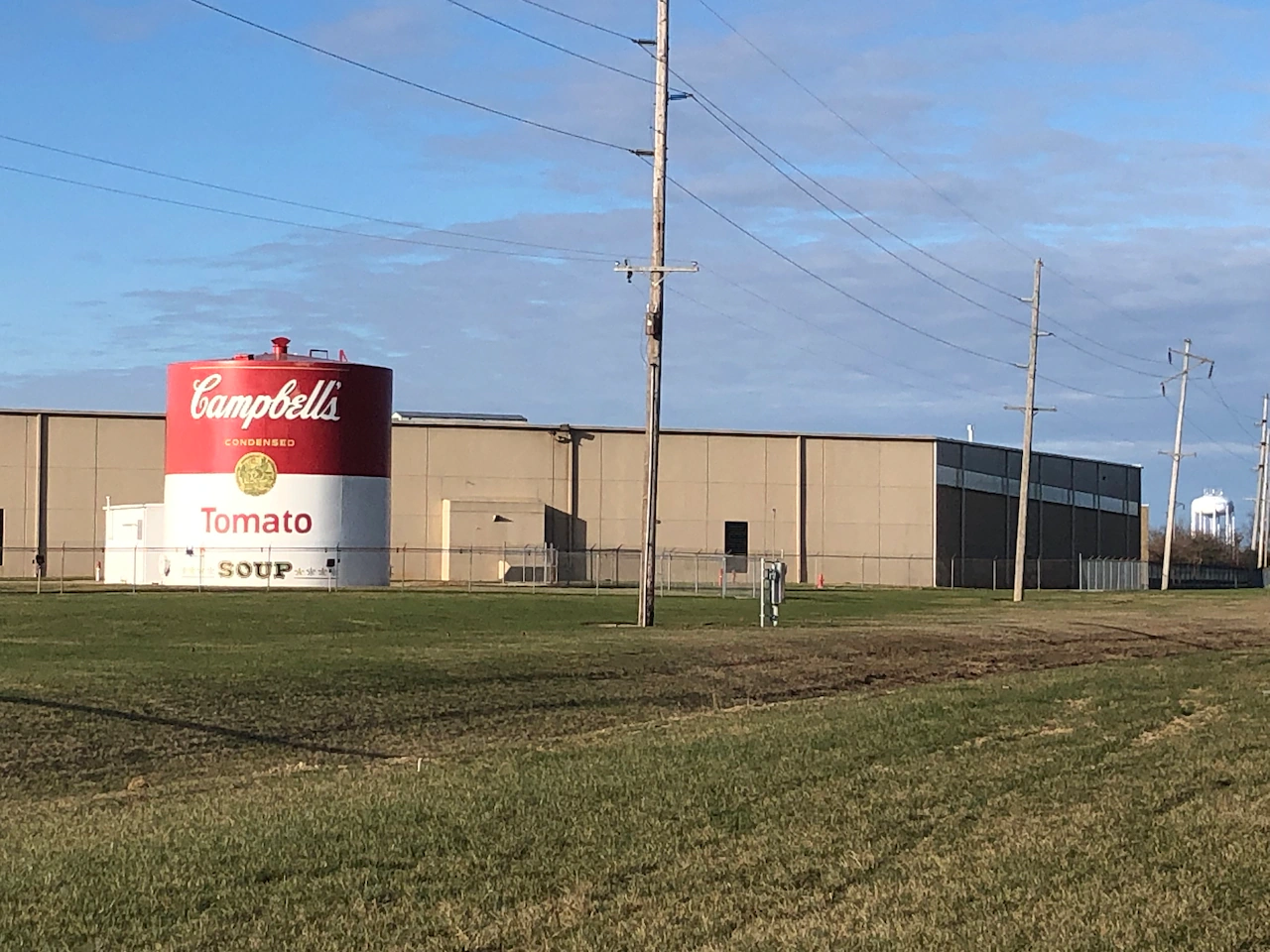Campbell’s Co. admits to years of polluting Maumee River, Lake Erie at Ohio canning facility

CLEVELAND, Ohio — The Campbell’s Co. admitted on Monday to polluting the Maumee River that feeds into Lake Erie over a six-year span at the company’s massive canning facility in western Ohio.
The admission came in a joint filing for two lawsuits brought against the soup giant, one by advocacy groups and another by the U.S. Environmental Protection Agency.
The filing said the company admitted to violating the Clean Water Act at least 5,400 times between April 2018 and December 2024.
The cases will move toward either a hearing or settlement that will determine how much the company will pay in civil penalties or fines and what steps it must take to stop the pollution.
“That’s great news for the people who live along the Maumee River and Lake Erie, who want prompt action on reducing sources of the toxic algae in their local waters,” said John Rumpler of Environment Ohio, one of the groups that sued Campbell.
Campbell’s spokesman James Regan said in a statement that the company has taken numerous steps to comply with environmental regulations, and it is seeking to settle the lawsuits.
“We have been part of the Napoleon community since 1938, and our goal is to reach a settlement that serves the interest of the environment and the community where our employees live and work,” Regan’s statement said.
The National Environmental Law Center filed one lawsuit on behalf of two environmental advocacy organizations — Environment Ohio and Lake Erie Waterkeeper. The U.S. Department of Justice filed the other. Both were filed in March in Toledo federal court.
The lawsuits accused Campbell’s canning factory in Henry County of dumping pollutants, including phosphorus, ammonia, E. coli bacteria, oil and grease, into the Maumee River, which flows about 43 miles into Lake Erie.
The pollution contributed to toxic algal blooms in the lake’s western basin, according to Sandy Bihn of Lake Erie Waterkeeper.
“Bringing an end to Campbell’s violations will help water quality in the river and Lake Erie, and (it) demonstrates the power citizen enforcement suits have to drive meaningful environmental progress,” Bihn said in a statement.
Regan, Campbell’s spokesman, denied that pollution at the canning factory contributed to algal blooms.
“Importantly, the facility has had minimal, if any, adverse effects on the Maumee River or Lake Erie,” he said.



